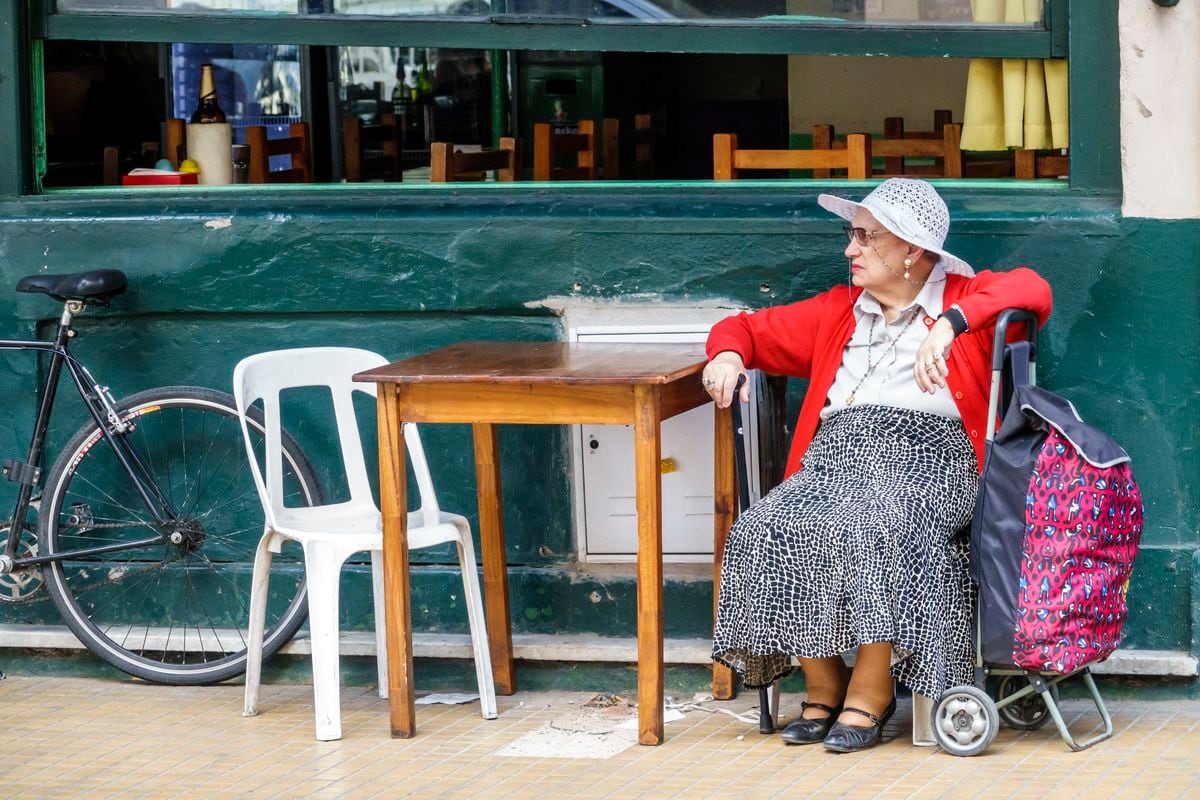In most countries around the world, pensions are updated once a year based on inflation, wages or a combination of both.
In Argentina, where prices are flying at a rate of 272% per year, it is impossible to do so because the income of retirees would become ridiculous.
Inflation is so high that even the quarterly update in force since 2021 falls short due to a formula that measures salaries and collections.
The Government of Javier Milei changed that formula by decree this Monday: starting in July, pensions will increase month by month due to inflation and until then, in April and June, compensatory sums will be given.
The change has irritated the opposition, which maintains that it is insufficient to compensate for the great loss of purchasing power of retirees and demands that the new formula be agreed upon in Congress.
In January and February, the Argentine Government managed to close the state accounts in positive for the first time since 2012. The financial surplus, however, was only possible after applying the largest cut in public spending in three decades.
38% of the cut went to pensions, which has made retirees the first line of Milei's adjustment at the start of his mandate.
In the last three months, prices have risen on average by 70% and medicines by 77%;
Pensions and retirements, on the other hand, have only increased by 27%, with the exception of the minimum, to which a bonus has been added to prevent it from falling below the poverty line.
The Government emphasizes that the 27% increase responds to the quarterly formula imposed during the presidency of Alberto Fernández, which took into account the data between September and November 2023. However, the Executive had the possibility of changing it by decree from the first day or to convene Congress to debate the formula that he initially proposed, which indexed for inflation starting in April.
By waiting until July, it complicates the recovery of the purchasing power lost in recent months and adds to that which retirees carry over from previous administrations.
From 2008 to date, with each new Government there has been a change in the formula for updating pensions and retirees have lost with all of them: under the presidency of Mauricio Macri, the minimum pension in real terms was reduced by 20% and with Fernández, 2% more, but with the latter, medium and high pensions suffered a decline of more than 25%, according to data published by Chequeado.
The multiple changes have unleashed a flood of lawsuits against the State.
“I think Argentina is the only country in the world—or one of the very few—that has a jurisdiction dedicated to Social Security.
“It is dedicated to judging the hundreds of thousands of complaints it receives for failing to comply with the mobility commitment,” he says.
The underlying issue is more serious.
The chronic inflation suffered by Argentina means that the debate on the pension system runs aground again and again in the search for an updating formula instead of addressing a comprehensive reform that makes it more efficient and sustainable.
As in the rest of the world, the Argentine population is also aging and today 16% of its population is over 65 years old.
However, unlike what happens in other countries, the discussion about a change in the retirement age is currently absent from public debate.
More than 200 exceptions
Experts celebrate the great coverage of the Argentine pension system, close to 95% of the total, one of the largest in the region.
However, they believe there is significant room to make it more efficient.
According to Rafael Rofman, a social protection researcher at the Cippec organization, one of the obstacles is the great fragmentation of the public distribution system, with more than 200 exceptions to the general regime.
Their beneficiaries can retire before age 60 for women and 65 for men and/or have higher pensions.
“The salad of exceptions in the pension system causes a lot of inequality, with very high benefits for some and very low for others,” says the Cippec researcher.
The best-known example is the privileged pensions that former presidents receive, equivalent to about 30 minimum pensions, but among the beneficiaries of the special regimes there are judges, diplomats, provincial employees, teachers, police and military personnel, among many others.
Rofman believes that with the current system “a lot is spent to obtain protection that could be obtained with almost 3 points less of GDP.”
An even bigger problem is the great informality of the labor market, close to 40%.
The lack of contributions to the social security of these workers (and the employers for whom they work) makes the pension system less sustainable, on the one hand, and makes it difficult for them to receive an adequate income when they reach retirement age.
About four of the 10.5 million retirees in Argentina receive a minimum pension that they accessed without having paid taxes for the 30 years established by the general regime.
Milei wants to leave out of the retirement system those who collect a pension without having contributed the minimum period stipulated by law, considering it “an injustice” compared to those who did.
One of the options that she is considering is for them to start collecting state aid similar to that received by the most vulnerable families.
In the long term, the president is committed to a comprehensive reform that reduces the role of the State and “introduces private savings mechanisms.”
Argentina already had those mechanisms and backed down, but everything indicates that Milei will do everything possible to force that debate again.
Subscribe here to the EL PAÍS América newsletter and receive all the key information on current events in the region.
Subscribe to continue reading
Read without limits
Keep reading
I am already a subscriber
_

